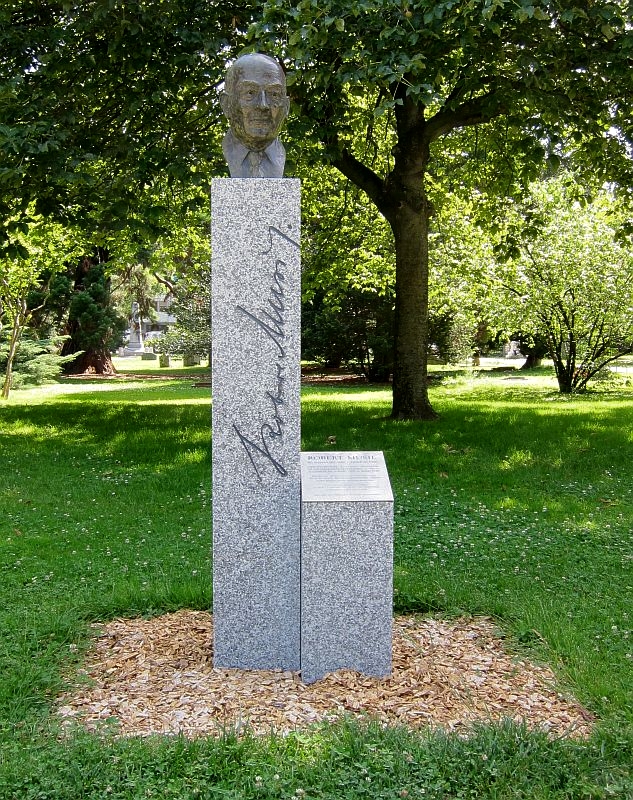Bruno Schulz, a Polish Jew, wrote a few stories in the 1930s and then was killed by the Gestapo after Germany took over Poland. It is upon these few stories which his legacy rests. They are stories of a little village on the Austro-Hungarian borderlands, of a strange father and a stranger world, and are at times comedic, at times serious, at times deathly sad. What makes them special – for after all there are quite a few central-European writers bemoaning life in the provinces at that time – is the way that Schulz writes. His language is infused with a kind of imaginative intensity, and every image, sound, or thought, is described without a cliché in sight, so that they hang in the mind long after we have finished reading.
In his obsession with language and his life’s tragic trajectory, Schulz is not unlike Isaac Babel. In his treatment of strangeness and absurdity, he has something of Kafka about him (he translated The Trial into Polish). And in his interest in the imagination and spaces, forbidden and mysterious, he often reminded me of Borges. But as a writer, for better or worse, he is clearly unique, entirely himself.
Stories
The world that Schulz describes is seen through a child’s eyes and endowed with the full imaginative potential that each child brings to the world. The stories he tells are not plot-driven. Instead, they are closer to paintings – they make us drink our fill of a particular impression or mood. When things happen, it’s almost always an afterthought. Take the story “Birds”. The narrator’s father decides to house a hundred exotic birds in one room of their home after becoming interested in ornithology. When he needs still more entertainment, he decides to cross breed them, creating new and more bizarre specimens. In his obsession, the father begins to become bird-like himself. But one day the cleaner comes and throws the birds out. This is the essence of the story.
It lasts four or five pages. What sustains it is its language, more than the plot. A phrase like this – “The days hardened with cold and boredom like last year’s loaves of bread” – is enough to make us stop, pause, wonder. The story also contains its fair share of ideas, but unlike say in the case of Musil, the language in Schulz seems more important than what it might be trying to say. There is a condor who urinates in the same chamber pot as the narrator’s father, an image that brings to mind a certain Austrian psychoanalyst. Then there is the matter of the father’s own ornithological transformation – a demonstration of how our obsessions take hold of us. The story ends, however, after the birds have been driven out, with the father coming downstairs – “A moment later, my father came downstairs – a broken man, an exiled king who had lost his throne and his kingdom”. The image is too ridiculous to be wholly serious, and this light-heartedness means that Schulz never gets too bogged-down in the cleverness of ideas.
Character
Character also goes some way to sustaining a cold, hard, plotless universe. In “August” we meet some of the narrator’s relatives. Here’s an example:
“Emil, the eldest of the cousins, with a fair moustache in a face from which life seemed to have washed away all expression, was walking up and down the room, his hands in the pockets of his voluminous trousers.”
I love this description because of the trousers. It almost seems that they are more characterful than Emil himself. When Schulz applies his wondrous language to people, he can make truly memorable descriptions. Emil’s storytelling is described thus: “he told curious stories, which at some point would suddenly stop, disintegrate, and blow away.”
Of an aging man, Uncle Charles, Schulz excellently conveys a kind of paranoia through his description of Charles’ environment: “The rooms, empty and neglected, did not approve of him, the furniture and the walls watched him in silent criticism.”
But the figure who is most striking is easily the narrator’s father. Unlike Kafka’s father, the father of Schulz’s story is a person more to be pitied than feared: “We heard him talk to God, as if begging for something or fighting against someone who made insistent claims and issued orders”. He is at one point compared to an Old Testament prophet, but in the act of throwing a chamber pot from a window, so that the comparison is just as embarrassing to us as it is to the narrator. At one point the father turns into a crab, at another he appears to be in the process of transforming into a cockroach. In a tragic reinterpretation of Kafka’s “Metamorphosis” the narrator, a child, begs his mother to tell him what has become of his father. She merely says that he is now a travelling salesman, and home rarely. But the truth is that like Gregor, he has become monstrous, a thing to be shunned. And this is not something that the narrator should discover.
Imagination and Books
I wrote that Schulz shares with Borges a preoccupation with books and with magical spaces. In the longest story “Spring”, the narrator becomes engrossed in a stamp collection that comes to represent for him the key to understanding the world. In “The Book”, what appears to be an old catalogue is transfigured by the narrator’s nostalgia into being the source of all earthly joy. He looks everywhere for it, only to discover that the housemaid is using its pages for lighting fires. A paragraph like this, of which there are many similar examples, seems to make Schulz into a precursor to the great Argentine:
“An event may be small and insignificant in its origin, and yet, when drawn close to one’s eye, it may open in its centre an infinite and radiant perspective because a higher order of its being is trying to express itself in it and irradiates it violently”.
Schulz here is exploring the way that objects can be transformed by attention, and how they might disclose hidden meanings. Borges’s world too, is filled with magical objects – daggers, alephs, and the like. But what differentiates Schulz from Borges is that Schulz has more heart. The near destruction of the book for starting fires is a disaster, rather than a development in a story of ideas. The narrator’s emotions are felt by us, even though we retain a certain ironic distance (after all, we know that with age the narrator will realise that a catalogue is just a catalogue, and really not worth getting so excited about).
Magic Spaces
Beyond books, Schulz uses the imagination to transform his provincial town’s world into something far greater. One of my favourite stories is “Cinnamon Shops”, which sees the narrator go on a walk late at evening:
“It is exceedingly thoughtless to send a young boy out on an urgent and important errand into a night like that, because in its semi-obscurity the streets multiply, becoming confused and interchanged. There open up, deep inside a city, reflected streets, streets which are doubles, makebelieve streets. One’s imagination, bewitched and misled, creates illusory maps of the apparently familiar districts, maps in which streets have their proper places and usual names but are provided with new and fictitious configurations by the inexhaustible inventiveness of the night.”
With Schulz we never know when the real world ends and when the magical one begins. The narrator visits his school, but finds it transformed now that it is dark. He enters spaces he has never been before. He feels a certain anxiety, which Schulz conveys perfectly through his language:
“The profound stillness of these empty rooms was filled with the secret glances exchanged by mirrors and the panic of friezes running high along the walls and disappearing into the stucco of the white ceilings.”
Awe and wonderment are what makes these descriptions so compelling. Schulz has a particular talent for describing the sky, which always succeeds in making it ominous, or joyous, or frightening, as he desires.
Conclusion
His was a small oeuvre, but there’s no denying Schulz’s talent, which is why there are few valid reasons for avoiding him. Nevertheless, he is a writer who is better sampled in sips than gulps. My girlfriend, who bought me the collection, asked me to read the tales aloud to her. This was the right approach. Slowed down by my voice, the language could reach me with its full melodious complexity. I could not rush to find some plot – I could only enjoy what I had in front of me.
Schulz is a master of words. Even if his ideas are not as gripping as some other writers, or his plots as exciting, still he draws us in. Language, at least in his hands, is far more important than ideas or plots are in those of other writers, because Schulz uses language to transform the world. He reveals possibilities for vivid description which are obscured by the layers of cliché we normally read in books, and in doing so frees us from looking on the world as something finished, already described. Thanks to him we can see it as something magical once again.



